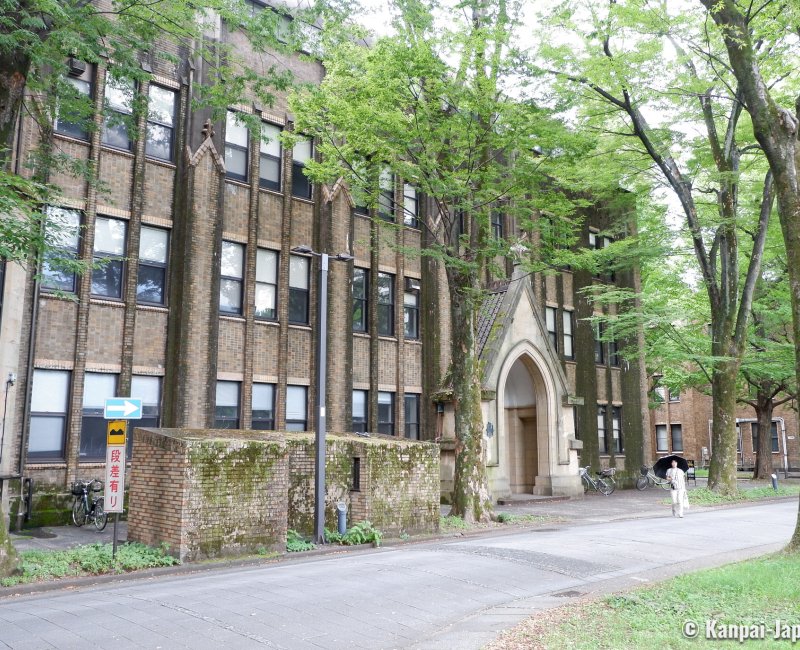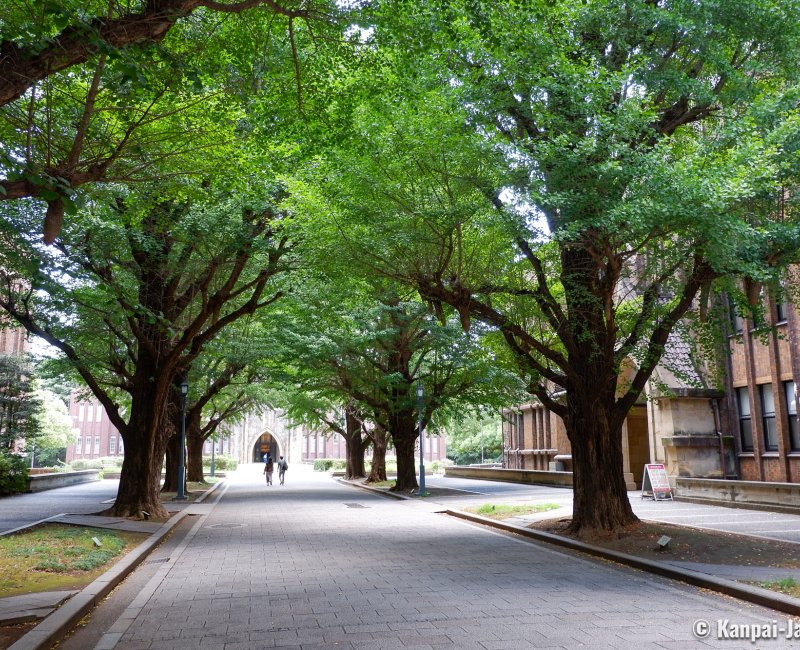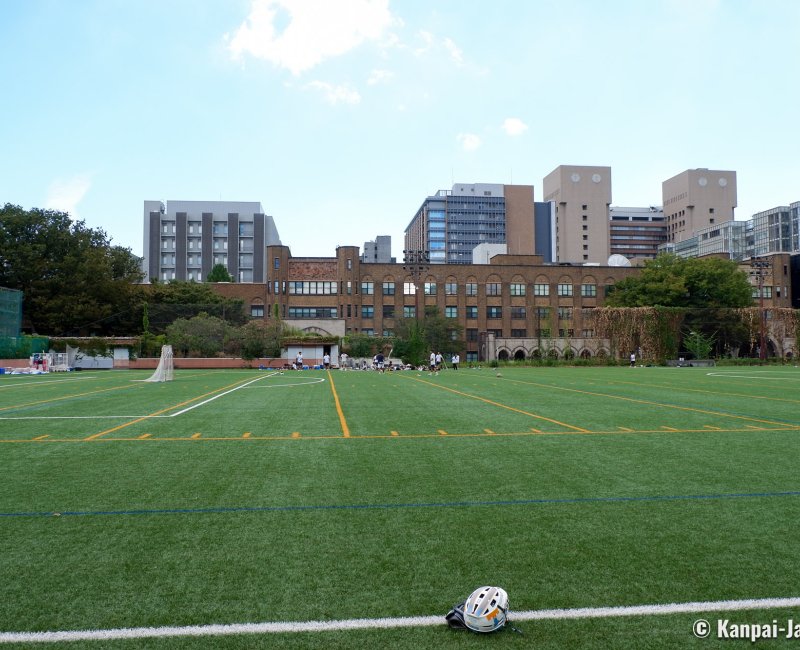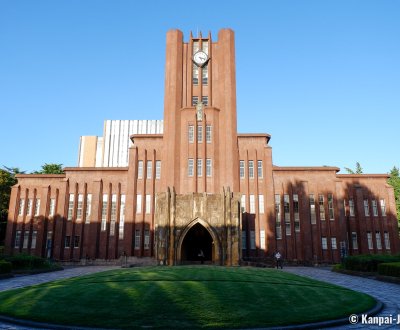Todai
The University of Tokyo
Todai is the name of the university of Tokyo, whose historical campus Hongo is located in the Bunkyo Ward, in the north-east of the capital. A former property of the Maeda daimyos during the Japanese feudal era, Todai’s Hongo campus is opened to visitors who wander around the early 20th century buildings and the pond of a former Japanese garden.
Todai (東大), was founded in 1877 as the Imperial University of Japan, and its name is an abbreviation using 2 characters of its Japanese name: 東京大学 (Tokyo daigaku, Tokyo University). It is now a public university and research center and has been a member of the Japan Association of National Universities since 2004. In 2027, the school will celebrate its 150th anniversary. It is constituted by about 10 departments dispatched in 3 main campuses:
- Kashiwa (柏キャンパス), established in 1998, it is the most recent, located in Chiba prefecture, on the Tsukuba Express train line, 30km in the north-east of Tokyo;
- Komaba (駒場キャンパス), in Meguro, in the west of Shibuya and was, until World War II, the 1rst preparatory school for university (Daiichi Koto Gakko); and,
- Hongo (本郷キャンパス), the historic campus and therefore the most iconic for outsiders, easily accessible by metro, near Kyu-Iwasaki-tei garden in the west of Ueno, in Bunkyo ward.

Strolling in the historical campus
Located to the north-east of the capital’s center and next to Tokyo University Hospital, Todai’s Hongo campus was built on the site of the former properties of the Maeda Clan (ruling over Kaga domain in Kanazawa), remains of the Edo period (1603 – 1868) when feudal lords had to live in the capital every other year.
Consequently, a few traces remains of this past feudal period, as well as a group of buildings whose oldest ones date back to the 1rst half of the 20th century. Most of the university’s original buildings of the Meiji Era (1868 – 1912) were destroyed by the Great Kanto Earthquake in 1923.
From the main entrance gate, we recommend the following walking course:
- Yasuda Auditorium, built in 1925, it is now Todai’s landmark, easily recognizable thanks to its modern Gothic architecture of red bricks by Yoshikazu Uchida (1885 - 1974), who drew inspiration from Cambridge's Trinity College Clock-tower;
- The ginkgos alley leading to the Auditorium, arranged in 1906 by professor Seiroku Honda (1862 – 1952) also known for designing Hibiya Park, and with trees supplied from Koishikawa Botanical Garden;
- Gotenshita Athletic Field;
- Sanshiro Pond, that used to be the focus of Ikutoku-en, the Maedas’ former Japanese garden; and,
- Aka-mon, the red gate (formerly Goshuden-mon), the 2nd and last authentic remain of the Kaga domain feudal residence.
Along the walk, you’ll spot statues of prominent professors and heads of Tokyo university, as well as the representation of Hachiko the dog reuniting with its owner at the Agriculture Faculty.
Yoshikazu Uchida designed many other red bricks Gothic buildings for the university, such as the School of Law’s, the Faculty of Letters and the Faculty of Medicine. These research centers are not open to the public but campus guided tours are available upon advance reservation. Volunteer students guide groups for 2 hours through the aforementioned main historical sites. Note that the campus is closed during exams periods.

Lunch at the students’ canteen
The central cafeteria (Chuo Shokudo) of Hongo campus is open to everyone and even tourists can eat there. It is located in Yasuda Auditorium’s basement floor and offers popular dishes at affordable prices (less than ¥1,000 / ~US$6.40) such as Japanese curry, and the local specialty, the Akamon ramen 🍜.
It opens on weekdays from 11 a.m. to 9 p.m. but we recommend avoiding the lunch rush hour (between 11:30 a.m. to 1:30 p.m.) so as to not interfere with students and professors’ busy day.
Every campus has several cafeterias and other affordable food stalls. These school restaurants are trying to cater to most of the students’ diets by providing seasonal or limited-edition meals, international specialties and vegan and halal courses.

A prestigious Japanese University, Todai appears in several mangas, so it is a place of pilgrimage for hardcore fans, while not a must-see in Tokyo. Tourists walking through the area are pleasantly surprised by the quietness of the campus, its greenery and the classical architecture of European inspiration of its oldest buildings.

